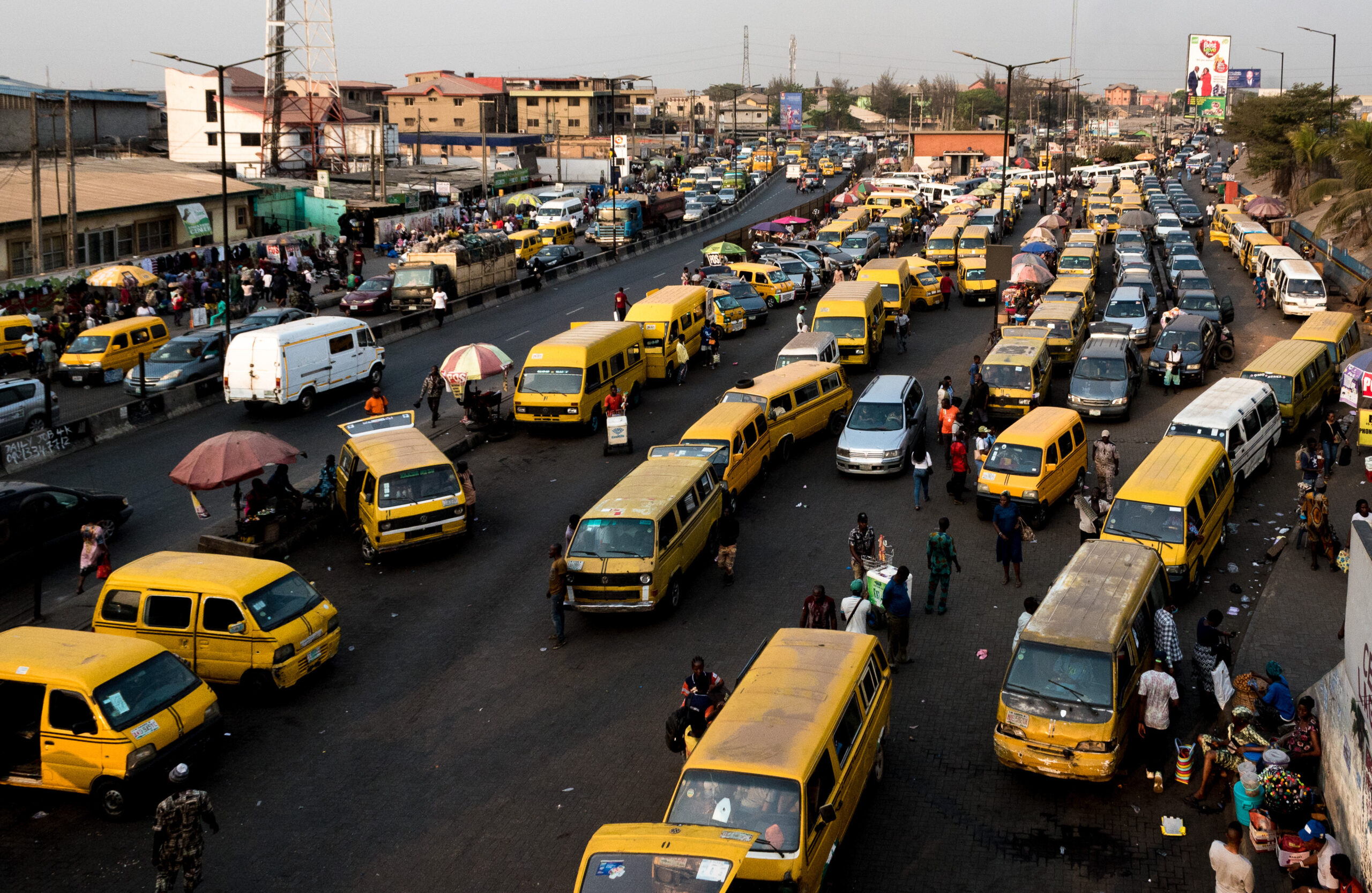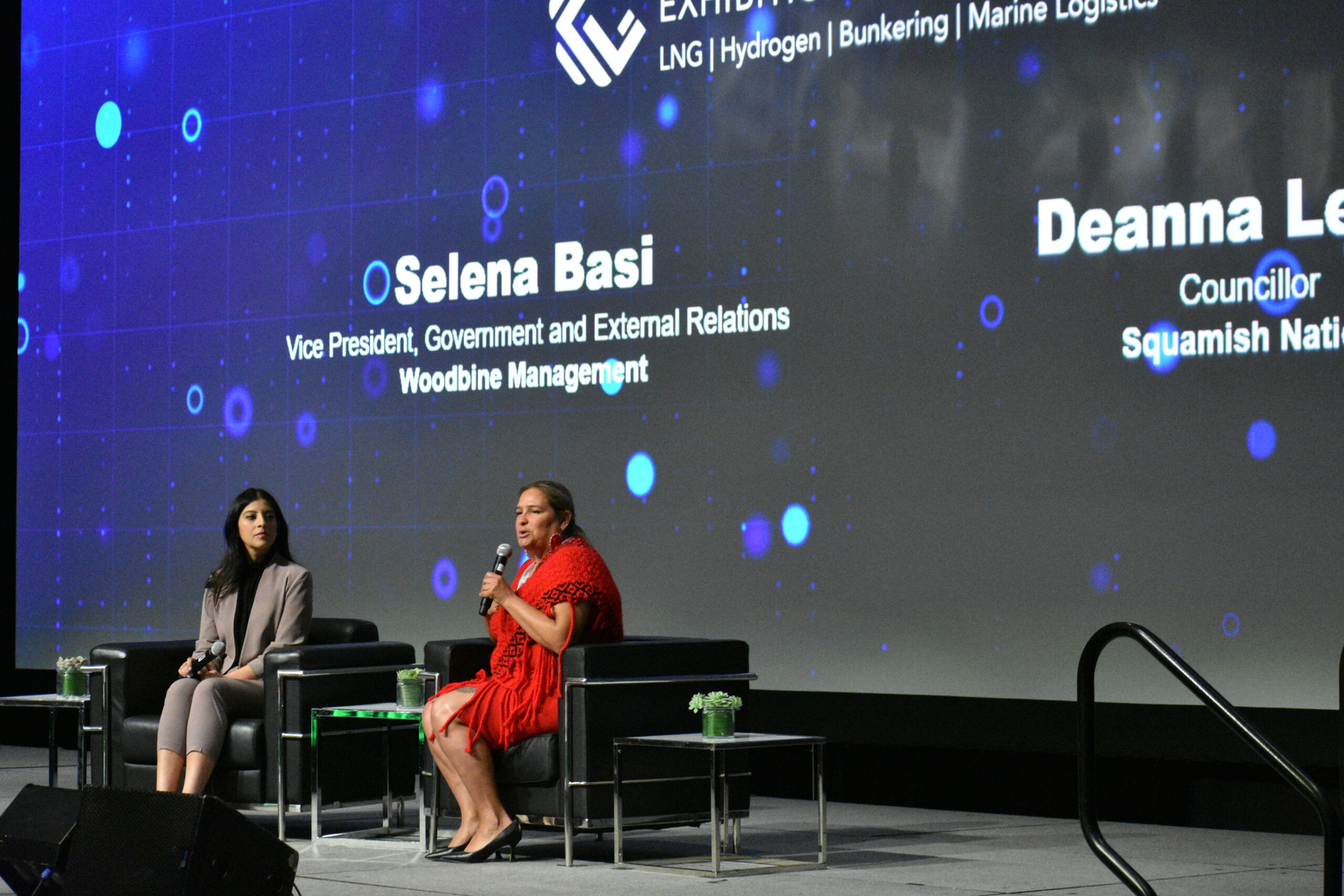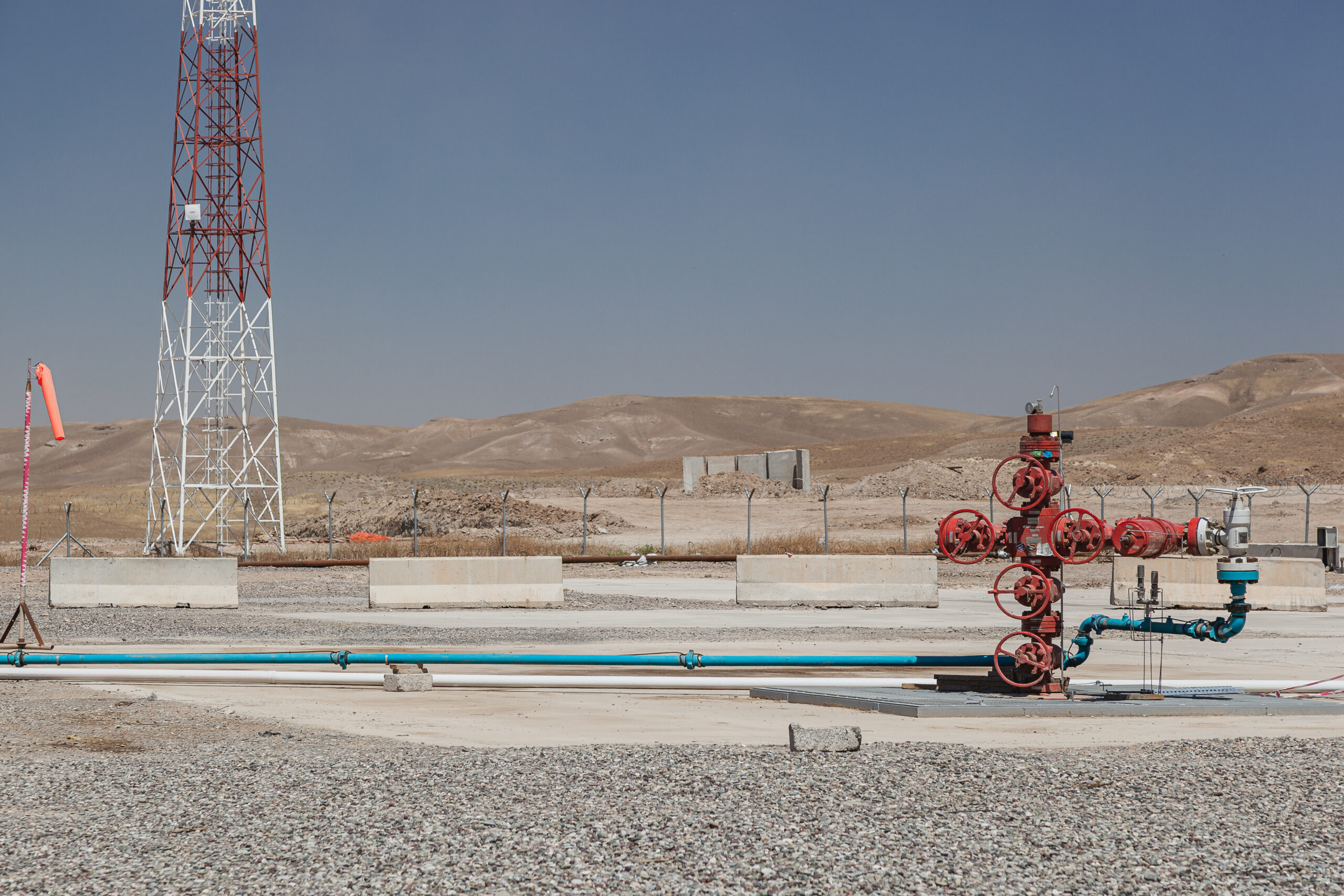Concerns over compressed natural gas-run buses in Nigeria
Nigeria is planning to use compressed natural gas for public transportation in all states after a national petrol subsidy removal, but experts cite safety and other issues and are calling to replace gas with electrification instead.

Nigeria’s Vice-President Kashim Shettima, during the National Economic Council on the petrol subsidy removal, said the federal government would vigorously pursue the mass deployment of compressed natural gas (CNG) vehicles in all states for public transportation.
In the short term, the government promised to create autogas conversion factories and kits in every state and to begin the widespread deployment of CNG-powered vehicles. The government also committed to deploying electric vehicles nationwide, including automobiles and buses with charging stations.
President Bola Tinubu, in a similar vein, pledged to launch buses for mass transit at a significantly lower cost across states and local governments. He said that between now and March 2024, his government had allocated N100 billion to acquire 3,000 CNG-powered, 20-seater buses. This is part of some palliatives the president aimed to use to cushion the effects of the petrol subsidy removal on Nigerians.
According to Tinubu, “these buses will be shared with major transportation companies in the states, using the intensity of travel per capital.”
Since the removal of the fuel subsidy due to economic constraints, over 1 trillion naira has been saved by the government within 2 months. It has however increased the price of transportation and other sectors for low-income Nigerians. Vehicles and cars in Nigeria are majority-fuelled by petrol.
According to the National Bureau of Statistics (NBS), in 2018 there were about 11.8 million vehicles in Nigeria. That number was projected to increase to 13 million in 2021. This was made up of commercial (57.70%), private (40.98%), and government and diplomatic (1.32%) vehicles. A World Bank report also noted the average person in Nigeria emits less than 0.7 metric tons of CO2. Using petroleum-based products like PMS, AGO and ATK contributes to carbon emission; relatively small amounts of methane (CH4) and nitrous oxide (N2O) are emitted during fuel combustion.
Etulan Adu, an oil and gas production engineer, noted that as a long-term solution, the removal of the fuel subsidy would provide an avenue for the government to boost investment in renewable energy sources. “Diversifying energy sources, reducing dependence on fossil fuels and promoting clean energy initiatives can mitigate the impact of eliminating fuel subsidies. The overall effect would be adoption of cleaner and less carbon emitting means of transportation (CNG vehicles, EVs etc.)”
Experts and a government official have said using CNG to power clean transportation in Nigeria would help reduce carbon emissions. Still, there have been concerns about the lack of existing gas infrastructure in the country. Also, certain drawbacks associated with using CNG as an automotive fuel are raising doubts.
Vehicle emissions
Adu said that because CNG has low emissions and a low sulfur content, which improves air quality, it could help reduce air pollution in Nigeria. He said in Nigeria, the adoption of CNG to achieve clean transportation is feasible, but it won’t come cheap due to infrastructural deficits and logistical challenges in the domestic gas supply network.
“With Nigeria’s extensive natural gas resources and relatively high cost of gasoline (NGN591 per litre). CNG is a practical alternative to cut costs incurred on vehicle fuel and to minimize GHG emissions in urban centres. For fleet vehicles, transit buses, school buses, recycling trucks, delivery vehicles, and other types of vehicles, CNG is the practical and cost-effective option.”
Citing the benefits, he said using CNG significantly reduces harmful vehicle exhaust gas emissions like carbon dioxide, carbon monoxide and other suspended particles and protects the environment by reducing the effects of global warming.
Kelvin Emmanuel, co-founder and CEO of Dairy Hills Limited, a Nigerian food and beverages firm, advised the president that necessary steps must be taken to accelerate the adoption of compressed natural gas that can save Nigerians 58% in energy costs. He pushed for the deregulation of gas prices immediately. The deregulation, he said, means that gas prices will start floating and track diesel by 40%. “It is called the bending moment formula for gas prices and the reason it’s important is because investors are incentivized to bring in capital.”
Drawbacks, safety concerns
However, Adu said there are certain drawbacks associated with using CNG as an automotive fuel, such as the limited range of the vehicle, the limited availability of fueling facilities, the high initial investment costs, and the associated safety risks.
“In order to utilize CNG in a vehicle, it is necessary to have either a CNG dedicated vehicle or a CNG bi-fuel vehicle. A dedicated CNG vehicle is a vehicle exclusively powered by CNG, while a bi-fuel vehicle is a vehicle capable of running on both gasoline and CNG fuel. If neither type of vehicle is available, a Certified CNG Installer would be required to install a CNG Conversion Kit for the vehicle if the vehicle is intended to be powered by CNG fuel instead of gasoline or diesel.
“Extensive work is required from government and investors in developing Nigeria’s gas infrastructure and distribution facilities to aid the swift adoption of CNG,” he added.
Emmanuel said the gas shortage in the north might be a challenge in pushing for CNG adoption for clean transportation. He said, “The north has a gas deficit because Ajaokuta-Kaduna-Kano [gas pipeline] is pending. You can’t truck CNG in skids to the far North-West and North-East because of a cap on trucking of 500km You can’t rely on liquified natural gas because you need a regasification plant when it arrives at destination.
“Interestingly, the decision to merge Power and Gas is strategic because of fundamental problem GENCOs have amidst other major ones; is lack of access to gas. Increasing supply through infrastructure is critical to your vision of raising power generation significantly. Deregulating PMS and floating FX was the right decision, and the long term palliative to inflation is systemic decoupling.”
Cleaner alternatives to CNG
Adu said that to promote clean transport in Nigeria, the development of alternative fuels and advanced transportation technologies and the expansion of traditional public sector transportation services that result in lower emissions, greater efficiency of transportation per unit of energy, or a more accessible and usable transportation system will be necessary.
Such infrastructure, he said, includes: “development of electric grid for reliable and stable power supply developing infrastructure to charge electric vehicles consumers and fleets considering electric vehicles (EVs)—which include all-electric vehicles and plug-in hybrid electric vehicles (PHEVs)—need access to charging stations. Adoption of solar power charging station for EVs across the states.”
Duncan Byencit, lead of the e-mobility portfolio at Clean Technology Hub, noted that electric vehicles are quite important for sustainable cities to drive economic development. She said, “A city is sustainable when most of the technologies being used for power generation, transport, productive activities and the rest are sustainable that means they don’t release carbon emissions into the air; this brings me to talk about cities that we call the net zero villages whereby a community is powered by a mini-grid and you have electric mobility on users for transport.
“When we are taking e-mobility to a whole community, you don’t expect them to have sufficient light, already they don’t even have light for their normal basic activities, so if we are using e-mobility, that means we need to provide electricity to that community, that is where mini-grid and SHS comes in, to build charging stations, when you are introducing EV to cities or rural communities you are actually pledging to provide electricity to that city because you need them to charge those vehicles.”



